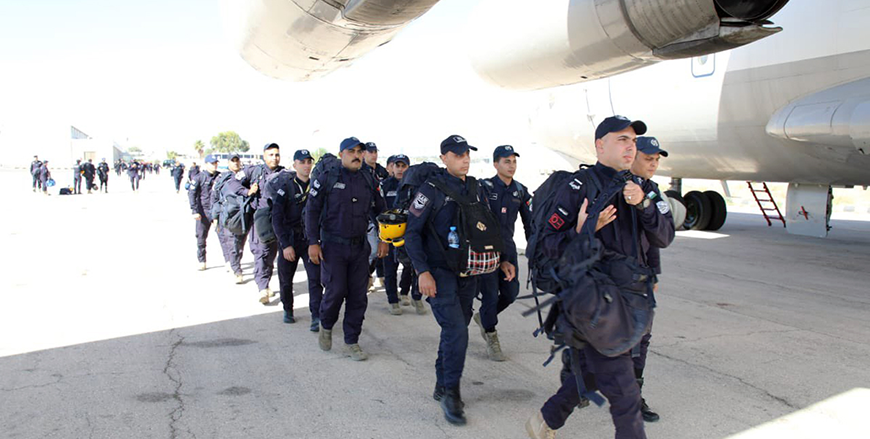AMMAN — Upon Royal directives to help Libyans affected by the recent floods, Jordan dispatched its second Royal Jordanian Air Force (RJAF) relief aircraft to Libya, according to a Foreign Ministry statement.
A joint effort involving the ministry, the armed forces, the Public Security Directorate (PSD) and the Jordan Hashemite Charity Organisation (JHCO), the aircraft carried logistical and medical supplies and the PSD's Jordanian International Search and Rescue Team. The team will participate in search and rescue missions and help people caught in flash floods.
Sanan Al Majali, the ministry's spokesperson, noted that the team consists of 88 members, including five doctors from the Royal Medical Services.
The specialised team, operating under the authority of the Civil Defence Directorate within the PSD, was awarded the international "heavy" classification. It is a globally recognised, highly skilled team that has already participated in international relief missions, most recently the search and rescue operations following the earthquakes in Turkey in February.
Upon Royal directives, the JHCO, in cooperation with the Foreign Ministry and the RJAF, on Wednesday dispatched a humanitarian and relief aircraft to Libya. On its first mission, the plane was laden with essential relief items including tents, blankets, mattresses and food parcels.
